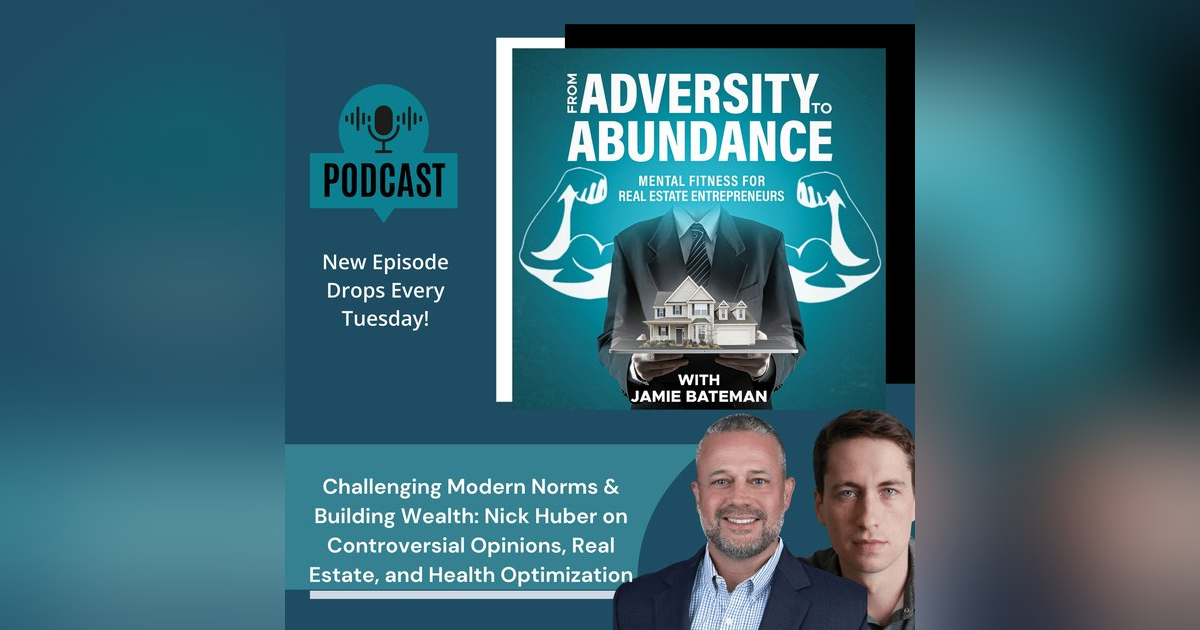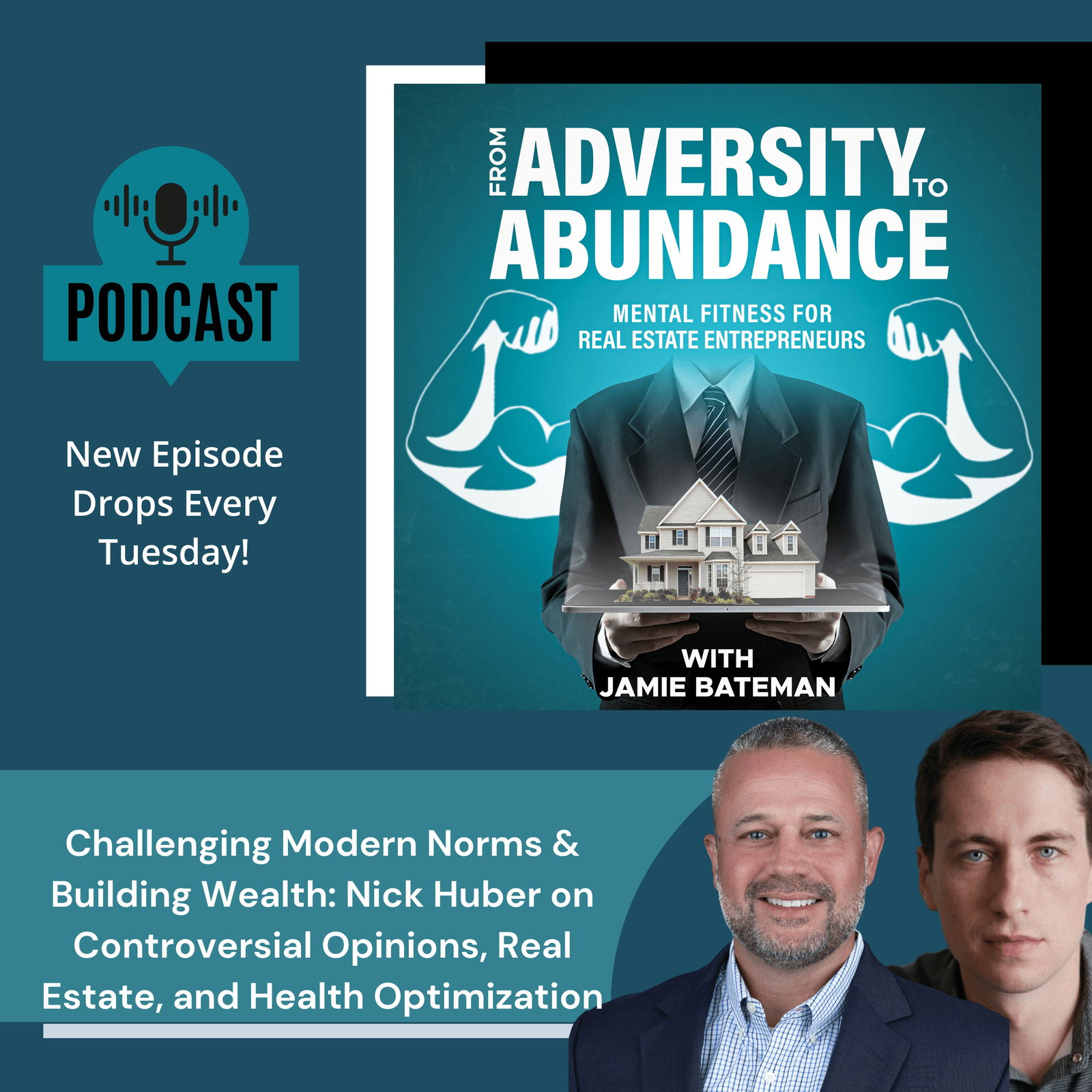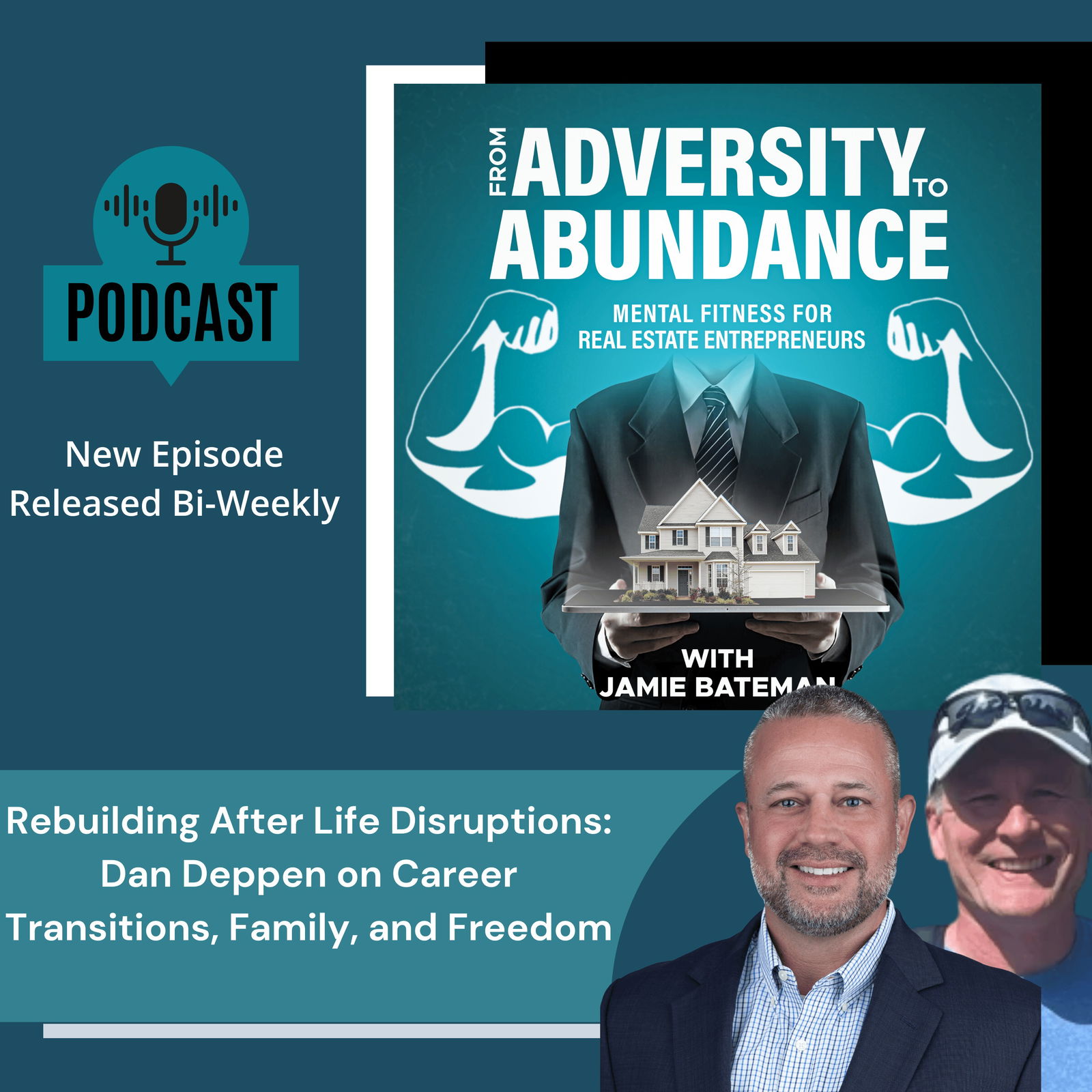Challenging Modern Norms & Building Wealth: Nick Huber on Controversial Opinions, Real Estate, and Health Optimization


In this episode of From Adversity to Abundance , host Jamie Bateman welcomes back entrepreneur and real estate investor Nick Huber for a refreshingly bold and unfiltered conversation. Unlike his first appearance, this episode isn’t focused on Nick’s personal backstory or a single moment of adversity—instead, the two dive headfirst into some of Nick’s most controversial takes on modern life, business, health, and society. It all stems from a recent post Nick shared on X (formerly Twitter), listing 25 opinions he believes will become widely accepted over the next 20 years.
From video game addiction and hormone optimization to the future of AI, crypto, and even how 40-year-olds can (and should) take control of their health, Nick doesn't hold back—and Jamie doesn’t shy away from pushing back either. While Nick’s business track record with companies like Bolt Storage, RE Cost Seg, and Sweaty Startup (somewhere.com) speaks for itself, this conversation is more about mindset and challenging the status quo.
Guest Introduction: Nick Huber
Nick Huber is a serial entrepreneur and real estate investor who began his journey by launching Storage Squad in 2011. Since then, he has built and scaled multiple multi-million dollar businesses, including Bolt Storage, RE Cost Seg, and Sweaty Startup. Known for his large following and unapologetic takes on X, Nick is a strong advocate for personal responsibility, business efficiency, and critical thinking.
Episode Highlights:
- Controversial Opinions, Unfiltered – Nick shares and defends several of his boldest views, from video game addiction to the overuse of pharmaceuticals.
- Challenging the Status Quo – Jamie pushes back on many of Nick’s hot takes, making for a lively, thought-provoking exchange.
- The Intersection of Health & Wealth – A deep dive into Nick’s beliefs about routine bloodwork, hormone optimization, and how it impacts performance for men and women.
- AI, Crypto, and the Future – Hear Nick’s sharp takes on where technology is headed and how it will affect real estate and beyond.
Key Takeaways:
- Challenging commonly accepted beliefs can spark meaningful conversation—and growth.
- Health optimization is often overlooked by entrepreneurs but plays a key role in long-term success.
- Adversity doesn’t always look like rock bottom—it can be the resistance we face when going against the grain.
Connect with Nick Huber:
BOOKLIST: https://sweatystartup.ck.page/b3c17cfb83
NEWSLETTER: https://sweatystartup.com/
BUSINESS BROKERAGE: https://nickhuber.com/
INSURANCE: https://titanrisk.com/
DEBT AND EQUITY: https://bluekeycapital.com/
TWITTER: https://twitter.com/sweatystartup
FACEBOOK: https://www.facebook.com/sweatystartup
LINKEDIN: https://www.linkedin.com/in/sweatystartup/
📘 Coming Soon: The Sweaty Startup Book
Nick Huber’s new book, The Sweaty Startup Book , will be released on April 29, 2025 . In it, he expands on the mindset shifts, business principles, and controversial takes that have fueled his success across multiple ventures.
🔥 The Tweet That Started It All
This episode dives into a viral post where Nick shared his 25 controversial opinions —ideas he believes will become widely accepted over the next 25 years.
Services
Integrity Income Fund:
https://labradorlending.com/investors/passive-investors/
Labrador Mentorship:
labradorlending.com/investors/active-investors/
—
Haven Financial Services:
Learn more: jamie.myfinancialhaven.com/
—
Purchase Jamie’s Book: www.amazon.com/dp/B0CGTWJY1D?ref_=pe_3052080_397514860
—
Connect with Labrador Lending
Website: www.adversity2abundance.com
Facebook: https://www.facebook.com/labradorlending/
Instagram: https://www.instagram.com/labradorlendingllc/
LinkedIn https://www.linkedin.com/company/labrador-lending/?viewAsMember=true
Youtube: https://www.youtube.com/channel/UChYrpCUlqFYLy4HngRrmU9Q
Connect with Jamie Bateman
LinkedIn: www.linkedin.com/in/jamie-bateman-5359a811/
Twitter: twitter.com/batemanjames





